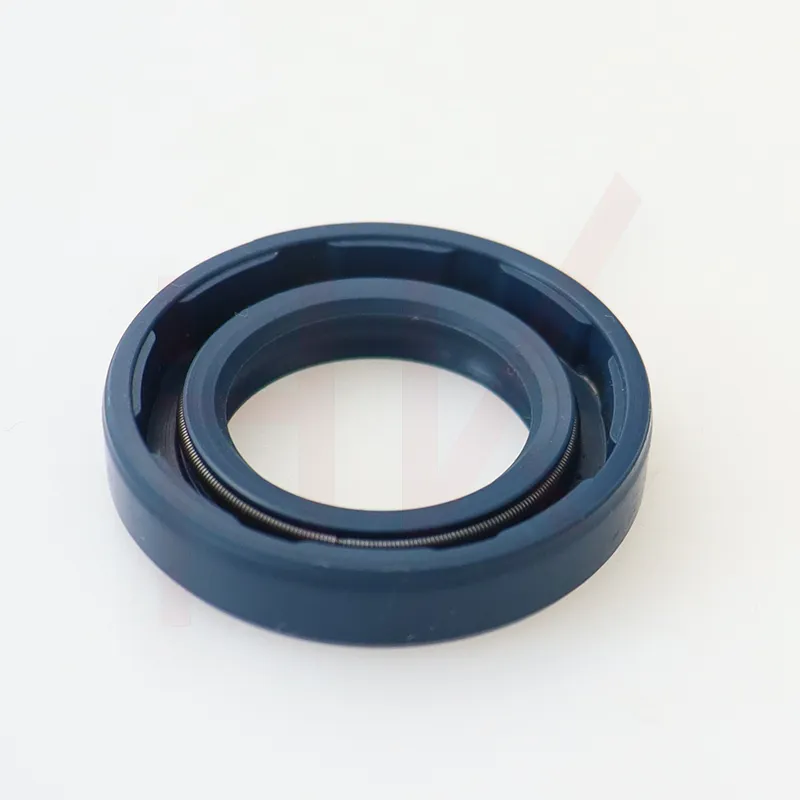നവം . 27, 2024 00:25 Back to list
Understanding the Function and Applications of Hydraulic Lip Seals in Machinery
Understanding Hydraulic Lip Seals
Hydraulic systems play a critical role in various industrial applications, from heavy machinery to automotive components. A vital component of these systems is the hydraulic lip seal, a device engineered to prevent the leakage of hydraulic fluid, ensuring the efficient operation of hydraulic systems. This article delves into the design, function, advantages, and considerations associated with hydraulic lip seals.
What is a Hydraulic Lip Seal?
A hydraulic lip seal is a type of sealing member typically employed in hydraulic cylinders and other related components. The seal comprises a flexible elastomer material and is designed to fit snugly within a machined groove, effectively blocking the escape of hydraulic fluids. The lip of the seal creates a contacting surface with the moving parts, primarily the piston or rod, thereby forming a barrier against fluid leakage.
Design and Function
The design of a hydraulic lip seal is crucial to its performance. Primarily, it consists of three components a sealing lip, a backup ring, and a spring. The sealing lip is the part that contacts the moving surface, while the backup ring provides additional support to maintain the shape of the sealing lip during operation. The spring plays an essential role in ensuring that the lip remains in constant contact with the rod or piston, further enhancing sealing effectiveness.
The function of the hydraulic lip seal is twofold it prevents the loss of hydraulic fluid and protects the hydraulic system from contamination due to dirt and other external elements
. Proper sealing is crucial for maintaining pressure within hydraulic systems, allowing them to function efficiently.Advantages of Hydraulic Lip Seals
1. Leak Prevention One of the primary benefits of hydraulic lip seals is their ability to prevent fluid leakage, thus reducing the risk of system failure and environmental contamination.
2. Low Friction Hydraulic lip seals are designed to minimize friction between moving parts. This feature is essential for energy efficiency, as reduced friction leads to lower power consumption and prolonged equipment life.
hydraulic lip seal

3. Durability Made from high-quality elastomers, hydraulic lip seals are resistant to wear, temperature fluctuations, and chemical exposure. This durability ensures a long service life, making them a cost-effective solution in the long run.
4. Design Flexibility Hydraulic lip seals can be tailored in design and materials to meet specific application requirements. This flexibility facilitates their use across various industries, from automotive to aerospace.
Considerations for Use
While hydraulic lip seals offer numerous advantages, there are several considerations to keep in mind regarding their use
1. Installation The installation process is critical. Improper installation can lead to misalignment, which may compromise the seal's effectiveness. It is essential to follow manufacturer guidelines meticulously during installation.
2. Material Selection The choice of material is vital, as different hydraulic fluids interact differently with seal materials. Selecting the appropriate elastomer based on compatibility with the hydraulic fluid is crucial for preventing seal degradation.
3. Temperature and Pressure Hydraulic lip seals have specific limits concerning temperature and pressure. Operating beyond these limits can lead to seal failure, so it is essential to consider these factors in the overall design of the hydraulic system.
4. Regular Maintenance Routine inspections and maintenance of hydraulic systems, including the seals, are key to ensuring optimal performance. Regular checks can help identify wear or damage early, facilitating timely replacements and minimizing downtime.
Conclusion
In summary, hydraulic lip seals are critical components of hydraulic systems, providing effective leakage prevention and contributing to the overall efficiency and longevity of machinery. With advantages such as low friction, durability, and design versatility, they are widely used across various industries. However, careful attention must be paid to installation, material selection, and maintenance to ensure their optimal performance. Understanding these elements is essential for anyone involved in the design or maintenance of hydraulic systems, as it ultimately contributes to the reliability and efficiency of operations.
-
TCN Oil Seal Metal Ring Reinforcement for Heavy Machinery
NewsJul.25,2025
-
Rotary Lip Seal Spring-Loaded Design for High-Speed Applications
NewsJul.25,2025
-
Hydraulic Cylinder Seals Polyurethane Material for High-Impact Jobs
NewsJul.25,2025
-
High Pressure Oil Seal Polyurethane Coating Wear Resistance
NewsJul.25,2025
-
Dust Proof Seal Double Lip Design for Construction Equipment
NewsJul.25,2025
-
Hub Seal Polyurethane Wear Resistance in Agricultural Vehicles
NewsJul.25,2025
-
The Trans-formative Journey of Wheel Hub Oil Seals
NewsJun.06,2025
Products categories
















